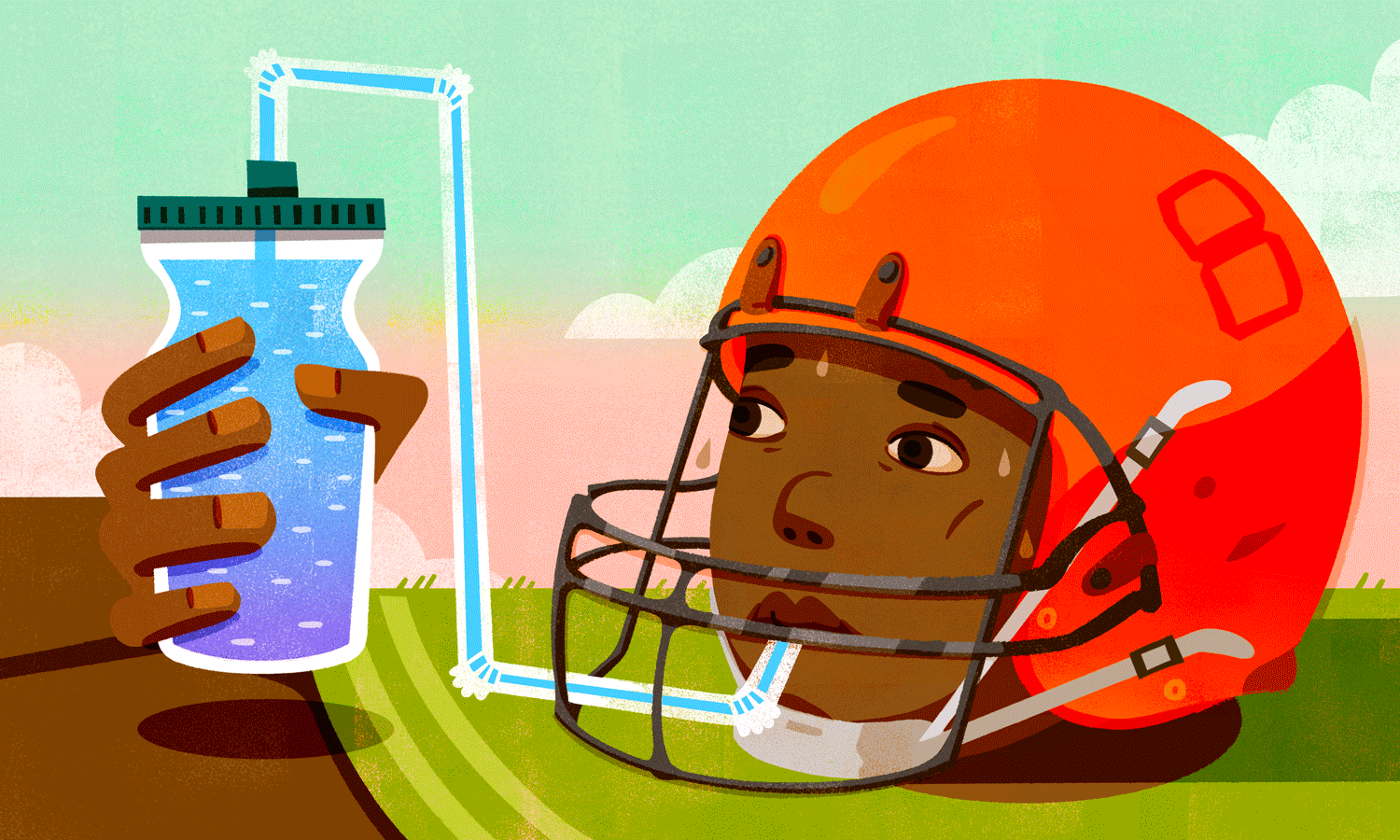
The
Impact
of
Climate Change
YUNYI DAI / NEXTGENRADIO
Ramon Castaños speaks with Carl Reed, one of the football coaches for Grant Union High School. Reed has been coaching the football team for about 21 years. Over the years he has noticed that the temperatures are getting hotter and hotter due to climate change. Reed’s team has had to adjust their training sessions by practicing in the mornings or going inside of the gym. He worries that football may turn into an indoor game.
Climate change forces high school athletics to adapt, cancel games
Coach Carl Reed talks about the effect of climate change in sports
Click here for audio transcript
I’m Ramon Castaños with NPR’s Next Gen Radio in Sacramento.
Carl Reed is one of the football coaches at Grant Union High School.
He’s been here for the past 21 years.
Coach says climate change and rising temperatures are forcing teams to adapt:
They’re pushing practices later in the day….
And canceling games… which means less money for the school.
COACH REED: So because football is a fall sport, but we go in the dead of the summer, you know, even now, October 10th, and it’s 91 degrees today. That’s weird. It’s hot.
My name is Carl Reed. I am the head coach, co-head coach and the co-athletic director here at Grant High School in Sacramento, California. This is my second year as a head coach. This is my seventh year as athletic director. I’m a teacher here, and I actually graduated from here as well. So this is my home. I grew up out here. This is this is where I played.
Climate change has affected us by having to make us more flexible. So fires, because we’re in a drought, air quality causes issues with us. We have to alter practice, cancel games. It’s been getting hotter. So with the heat we’ve hit 119, 120 here. So we have to either move practice earlier, later, or cancel events all in general because of the heat. So it has affected us and had to make us more flexible as coaches and leaders of programs.
(We’re) Really, really putting the big focus on hydration and investing in cooling fans and making sure we have ample water around and everything. It’s really pushed us to the point where we really got to be aware of all the heat related illnesses.
You’re talking about heatstroke. You’re talking about dehydration, you’re talking about everything.
So, signs of heatstroke and heat exhaustion are more so like dizziness, sweating, heavy breathing loss, you know, loss of breath. We go through that. We have to pay attention to that.
They can be really clammy and things like that. So, we really got to pay attention to them. We really pay attention to the body their signs are giving us, cause sometimes, you know, football kids want to think they have to be tough and stand. We, you know, we got to really see if they’re really hunching, know we’re really falling over, really getting dizzy and things like that. So we just really have to pay attention to that.
But to avoid it, especially we have more water breaks and then going in the evening, especially in the June, July, August period, specially, you know, instead of maybe practicing 3:00 o’clock will push practice to maybe eight when it’s going we know it’s going to be cooler.
September 9th of this year, we had a game planned. There was a fire up in the hills. Our air quality was healthy, unhealthy. So we had to stay in contact with the district and the team we’re playing because they’re coming from the bay. So finally, the district made the call to not play. I mean, we were upset, but we understood, you know, that’s that’s something that’s out of our control.
Unfortunately, a lot of stuff is money driven in life. So if you push it back, you may have to cut games. You cut games; you cut schools revenues because football is the sport that makes the money for a lot of schools. So instead of playing, we have ten games, usually go five and five, five home from away. So now let’s say I have two less home games, that’s maybe $20,000.
We practiced indoors when we had to. So we were right over there in the gym, helmets on in the gym. It’s air conditioned.
I really don’t hope that’s the way of the future.
I think the difference between older times and current times involving climate change in education, we didn’t know better. Air quality. What’s that? We weren’t educated. We were go out and play at any cost.
So some stuff might have not been safe to us, we just did it. But now it’s not. We have to pay attention to that. And it’s kind of just the change of times.
################
Carl Reed has been a football co-head coach for about 21 years at Grant Union School, Sacramento, but he and his team have had to change their training sessions or cancel games due to climate change, such as rising heat temperature.
Sacramento is getting hotter over the years and Reed has been noticing the changes which are affecting sports games like football. “So because football is a fall sport, but we go in the dead of the summer, you know, even now, October 10th, and it’s 91 degrees today,” Reed said. “That’s weird, it’s hot.”
The scientific term for the late summer heat is called Seasonal Lag. In places, like California and the Pacific Northwest, the hottest days of the year are farther away from the summer solstice and tend to happen later in the summer because the ocean absorbs some of the early summer heat.
Reed and his team had to alter their practices multiple times, pushing them back to later evenings because of the heat. He said, “Instead of maybe practicing at 3 p.m. we will push practice to maybe 8 p.m. when it’s going to be cooler.” Reed also mentioned that at times the district and school has policies for sports when it comes to the air quality.
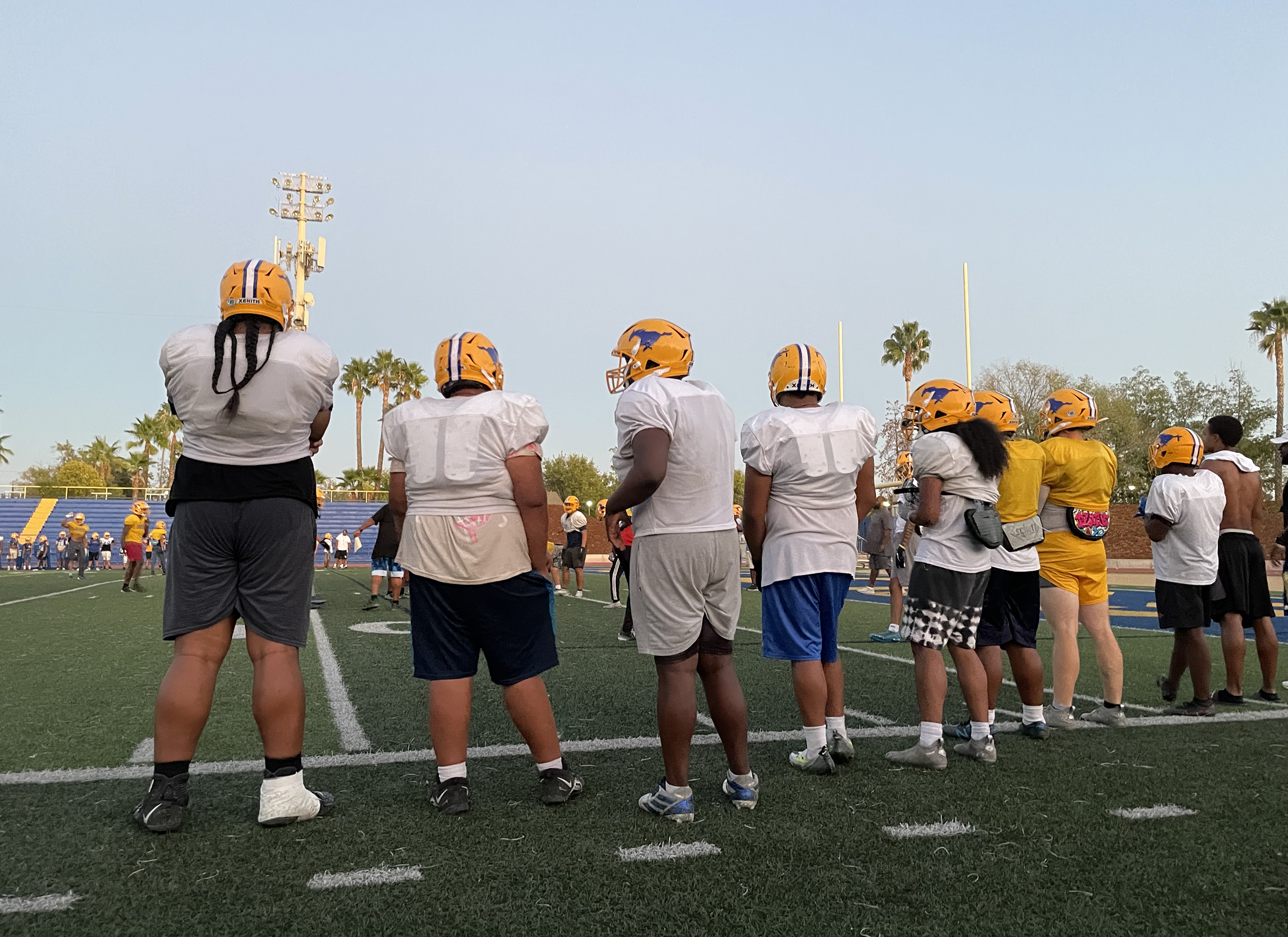
The Grant Union High School football team trains outside until after 7p.m. on Monday, Oct. 10 2022. Some of the team’s games have been canceled due to poor air quality and heat.
KRISTIN TORRES / NEXTGENRADIO
The team has training sessions inside the gym due to the bad air or the heat. Reed tells his student-athletes to drink water when they have their 20-minute break, and has staff bring them cold water. Reed doesn’t want the student-athletes to be dehydrated because if they don’t drink constantly, then it could lead to heat exhaustion or heat stroke.
The signs of heatstroke and heat exhaustion can be hard to catch. “We got to really see if they’re really hunching, really falling over, really getting dizzy and things like that,” Reed explained. In addition, he is grateful that none of his athletes had any serious heat strokes and that none of them had to go to the nurse’s office.
However, the school and the district had to cancel their games due to the heat. Reed remembered that his team was upset that their game had been canceled. “I mean, we were upset, but we understood, that’s something out of our control,” Reed said.
The school has lost about $20,000 due to canceling the games. “You cut schools revenues because football is the sport that makes money for a lot of schools,” Reed said. “So it’s a balance of what you’re going to do because, in the end, the almighty dollar talks.”
“The school district is thinking of pushing back football later in the year because the temperature is hot,” Reed said. They are considering turning football into an indoor sport. “I really don’t hope that’s the way of the future,” Reed said.
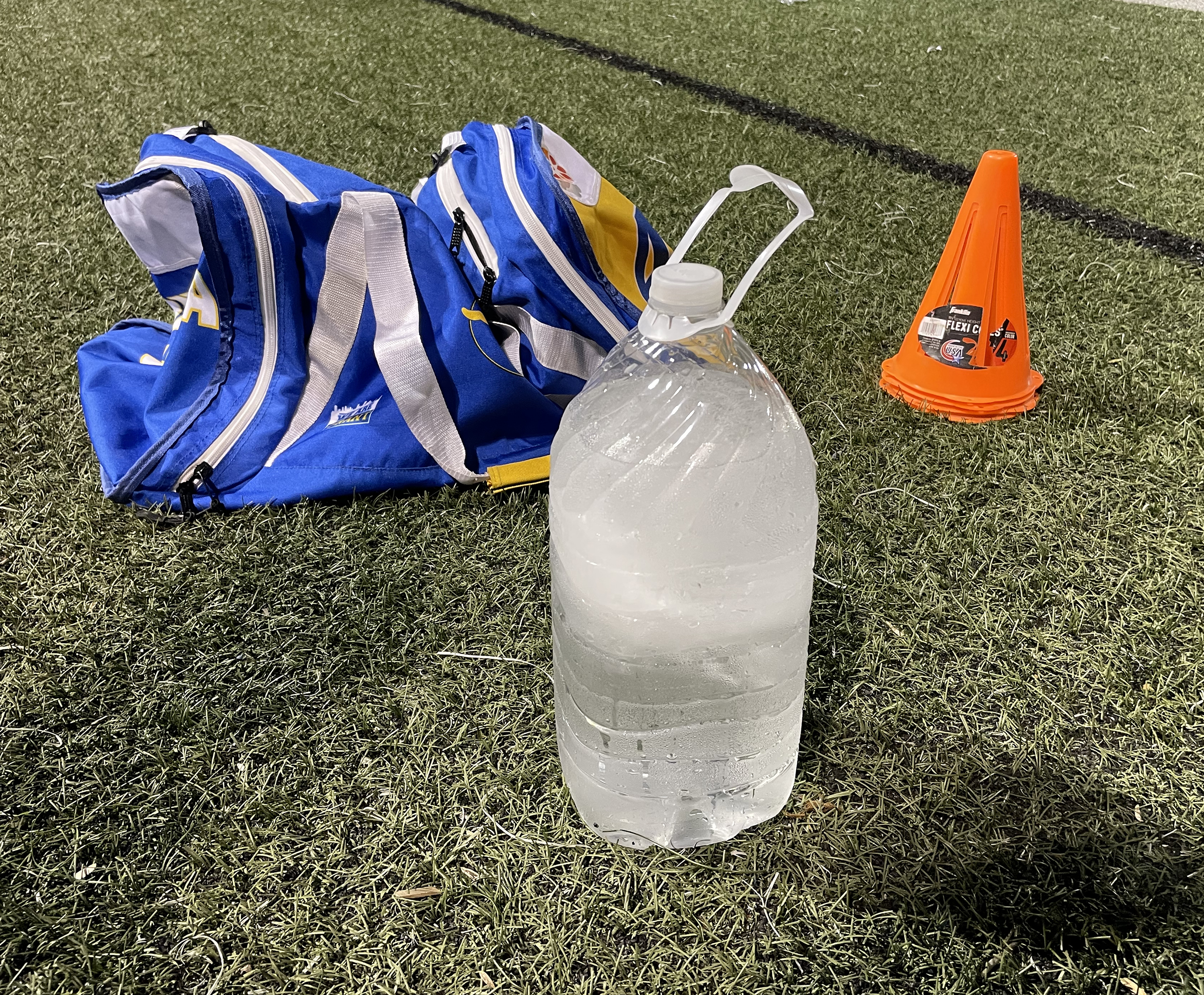
A jug of Ice cold water waits for one of the athletes practicing on the Grant Union High football field in October. Students need to hydrate when training. The coach gives them a water break every 20 minutes, and the team has a staff that brings water to the players throughout each practice.
KRISTIN TORRES / NEXTGENRADIO
However, he does recognize that the younger generation is more educated about climate change than the older generation. “We [would] go out and play at any cost,” Reed said. His generation didn’t care as much because playing was all that mattered to them.
When he was younger, players were told, “You have to earn your water,” but now that would be unacceptable in today’s society. “We weren’t educated,” he says. Reed also mentions that some call the new generation of players “weak,” but in reality, they are just better informed about the way rising temperatures impact student-athlete wellness.
“We didn’t know better,” he says; “So some stuff might not have been safe to us, but we just did it. Now it’s not. We have to pay attention to that.”
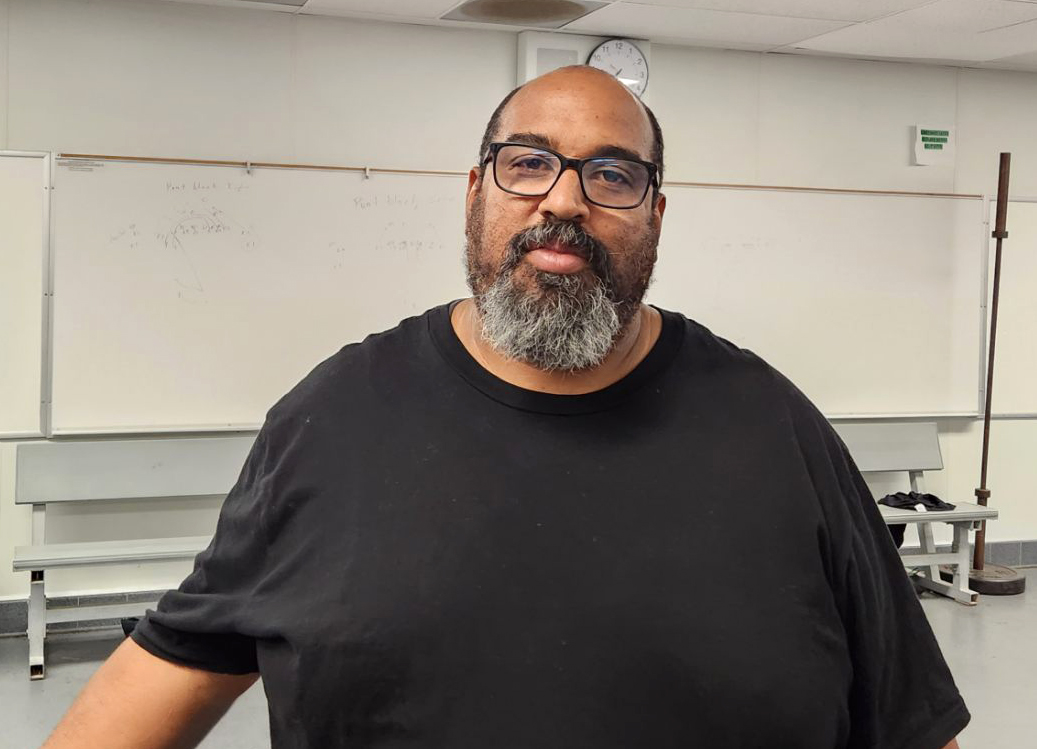
Carl Reed is the Grant Union High School Co-Head football coach in Sacramento, California. He has been coaching for 21 years and now has training sessions later in the evenings than he used to to beat the heat.
(Photo Credit: Ramon Castanos)
RAMON CASTAÑOS / NEXTGENRADIO
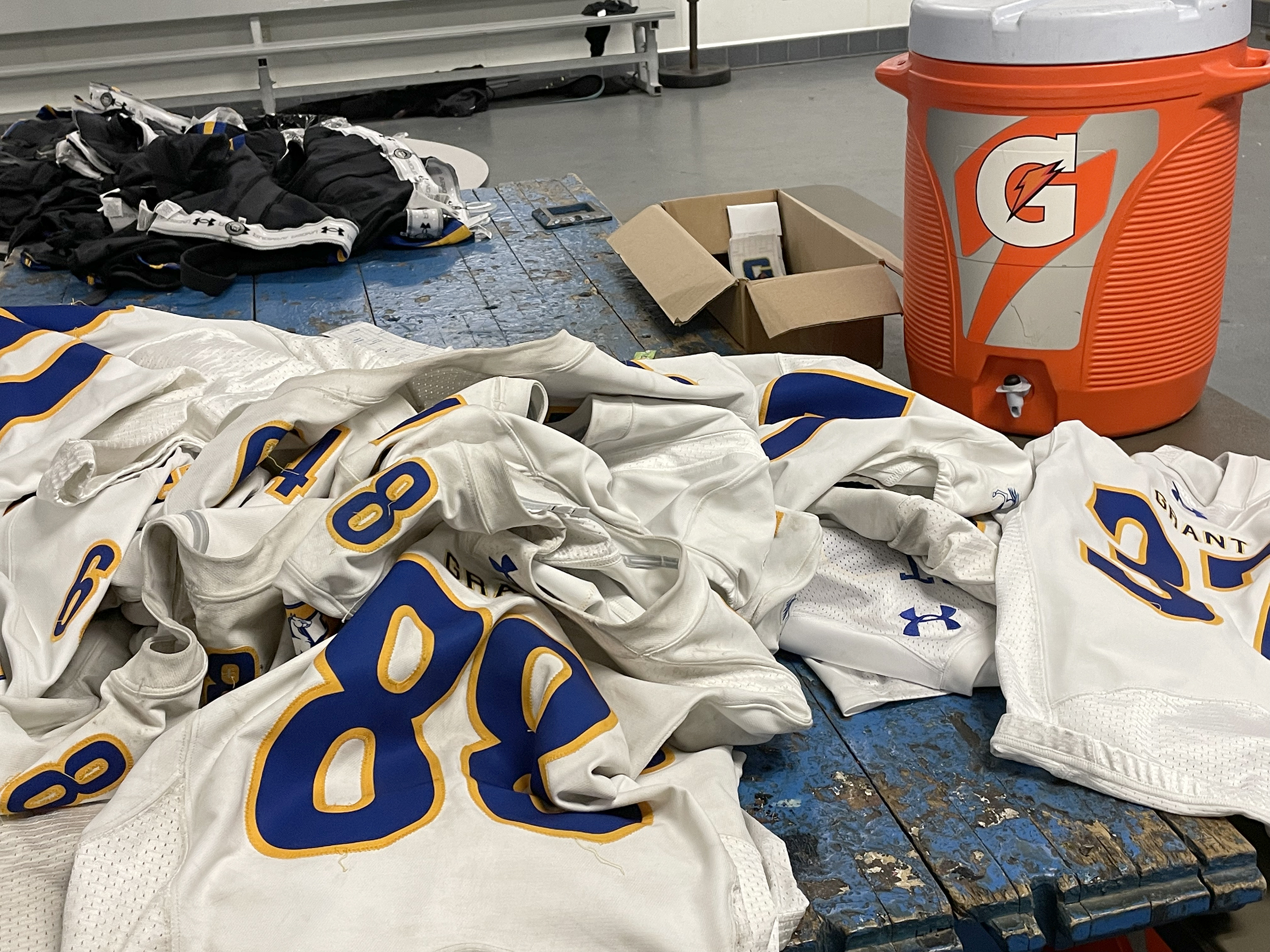
Dirty jerseys from the football training sessions adorn the locker room at Grant Union High School after practice on Oct. 10, 2022. The Gatorade helps keep the athletes hydrated as temperatures rise. Coach Carl Reed tells student athletes to drink a gallon of water and sport drinks throughout the day before training begins.
KRISTIN TORRES / NEXTGENRADIO